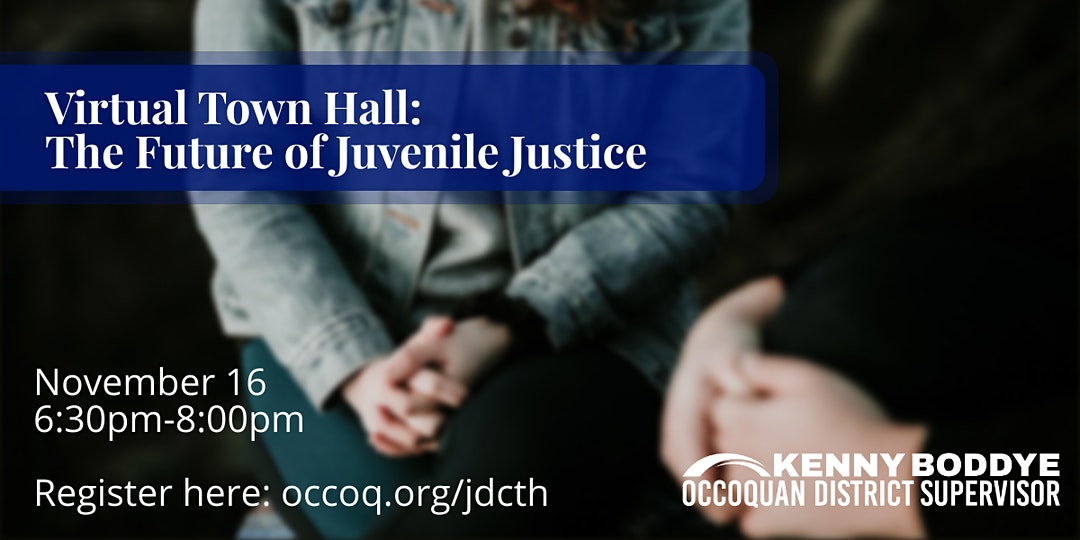Supervisor Boddye to Host “Future of Juvenile Justice in Prince William” Virtual Town Hall
How New Focus on Trauma-informed Care and Diversion Are Shaping Policies and Facilities in Prince William
Historically, court-involved youth were treated much like adults, sent to prison-like settings that lacked resources that would help them to successfully transition back into their communities. This has changed in recent years, with a research-based shift towards addressing the underlying issues—at the individual and societal levels—that bring children into contact with law enforcement in the first place. Occoquan District Supervisor Kenny Boddye invites the public to learn how this shift is playing out in Prince William County, during a “Future of Juvenile Justice” Virtual Town Hall on Nov. 16, from 6:30 to 8:00 pm.
He will be joined by Dee Kirk, Northern Regional Program Manager Virginia Department of Juvenile Justice (DJJ); Jeffrey S. Homan, Director 31st District Court Service Unit DJJ; Greg Porter, Intake Supervisor 31st District Court Service Unit DJJ; and Courtney S. Tierney, Director of Social Services Prince William County. The panel will discuss how the DJJ is using its Transformation Strategic Framework, rooted in findings from assessments by the Annie E. Casey Foundation, to achieve better outcomes through diversion programs, trauma-informed treatment and education.
Additionally, they will look at how the new Juvenile Services Campus in Prince William would support these initiatives. Improvements will include a more homelike setting, private counseling space and potential co-location with other youth services. The building will also be smaller, reflecting that fewer juveniles are entering detention—in 2017, 80% of Virginia court-involved youth were eligible for diversion plans.
“In a perfect world, investments in mental health, education and the reduction of poverty would mean that we no longer need such a facility. Already, we have seen a drastic reduction in the number of incarcerated youth in Virginia as we encourage diversion programs and a more therapeutic approach,” said Supervisor Boddye. “However, we also have a responsibility to accommodate the realities that we currently face. There is still a small percentage of children in the juvenile system that will enter into state custody for the foreseeable future. So the question becomes how do we make that time as constructive as possible, for the good of these youth, and their communities? We must do all that we can to provide these children with the skills and treatment they need to succeed when they return home.”
The “Future of Juvenile Justice” Virtual Town Hall will be accessible online and phone. To receive access information and to submit questions for the panelists, register at occoq.org/JuvenileJustice_th.


